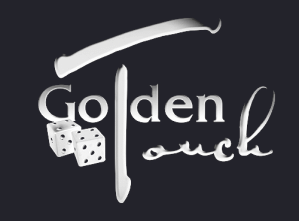
Golden Touch Craps
Study Shows 5-Count Does Change the Odds of Winning!
By Frank Scoblete
Can any betting system change the odds of a random game? The answer is a resounding no. If the casino game is random, no betting system ever developed by man can make one a long term winner. That is a brutal fact all casino players live with.
In 1989-1990 I wrote a book which brought to the public consciousness a man known as the Captain, an Atlantic City legend, who has won millions playing the game of craps since 1978. The Captain, now 87 years old is now retired from the game due to illness.
The Captain had two revolutionary ideas about craps that have now been proven based on computer studies and mathematical analysis. The first is that "rhythmic rolling" (today we call it "dice control") can alter the normal probabilities of the game to give some players the edge when they shoot and when you bet on these shooters. This has been proven by controlled shooters who have passed three very difficult tests given by the software program SmartCraps.
The second proposition concerned something the Captain called the 5-Count which I write extensively about in my new book The Golden Touch Dice Control Revolution.
The 5-Count is a method for determining which shooters to bet on. The Captain thought it would allow a player to avoid about 50 percent of the random rolls at the tables and that here is the once controversial part it would also allow you to be on controlled shooters who were changing the nature of the game more often than a "bet-every-shooter" player. He thought these controlled shooters were out there in the craps playing world and that the 5-Count could find them and exploit their rolls.
Now if there are no controlled shooters in existence, the 5-Count merely reduces your losses since you are betting on only 43 percent of the random rolls. Yes, the Captain had underestimated how many random rolls the 5-Count avoided. He thought it was 50 percent but the study of the 5-Count by Dr. Don Catlin, a mathematician at the University of Massachusetts, showed that the 5-Count eliminated 57 percent of the random rolls.
Fine; against the random rollers, my first paragraph holds. Nothing can make you win against randomness, including the 5-Count, although it will reduce the hit on your bankroll from the casinos.
But what about this idea that the 5-Count will find and exploit controlled shooters at a table? Is it possible that such a mechanical way to play is actually the most intelligent concept when looking for controlled shooters?
Dr. Catlin did a computer study of 10 million rolls, dividing the bettors into two groups: 1. the bettor who used the 5-Count on all shooters; and 2. the bettor who didnt use the 5-Count but bet on every shooter all the time.
Dr. Catlin then postulated that each bettor would bet on 10 different shooters, one of whom was a controlled shooter with an SRR (seven to rolls ratio) of 1:7, which means unlike a random game where the SRR is 1:6 (seven appears on average once every six times), the table had a decent controlled shooter playing at it.
Would the 5-Count be able to exploit this controlled shooter? Would it be able to pick him out and bet on him more than a "bet-all" player bets on him? It sure did! The 5-Counter was able to pick out the controlled shooter 10.7 percent more than the "bet-all" player. Here is an excerpt of what Dr. Catlin discovered:
"The 5-Count selected the skilled shooter 10.7 percent more often than it selected the random shooter. the simulation clearly shows that if there is a skilled shooter at the table the 5-Count will select him with a higher frequency than the rest of the players and will thereby reduce the house edge or, as in this case, give the player the edge."
What would happen to a 5-Counter who found himself at the tables with a great dice controller such as the Golden Touch craps crew sporting SRRs at 1:8 or higher? Catlin ran these figures through his simulation and this is what he found: "Reran program with SRR 1:8; there were 20 million rounds of play which produced in excess of 200 million games. This time [the 5-Counter] was on [the controlled shooter] a total of 12,152,952 times while on [random players] a total of 10,165,524 times. The result was a $6,852,787.80 profit with $596,017,946.00 put at risk. This represents a 1.15 percent return per dollar to the player."
Dr. Catlin continued: "Keep in mind that [the 5-Counter], who is showing this profit, is not a controlled shooter and does not know that a controlled shooter is at his table. Hes just utilizing the 5-Count as a normal part of his play. Yet, by making good house edge bets, Pass and Come with double odds, he has managed to get a real edge over the casino. Factor in comps now and you can see that he has a rather hefty monetary edge as well."
Players who think they can stand at a table and visually tell if someone is a controlled shooter are fooling themselves. Unless you know in advance that someone really has control of the dice, by knowing the shooters SRR and/or by knowing the shooter has passed the SmartCraps tests, you are making a leap of faith in letting your observations dictate how you will bet on a shooter whose skills you dont know.
On the other hand, if you use the 5-Count, an easy-to-learn mechanical method for selecting shooters, you are guaranteed the ability to select the controlled shooters. So, yes, the 5-Count can change the nature of a craps game without the 5-Counter even knowing this.


